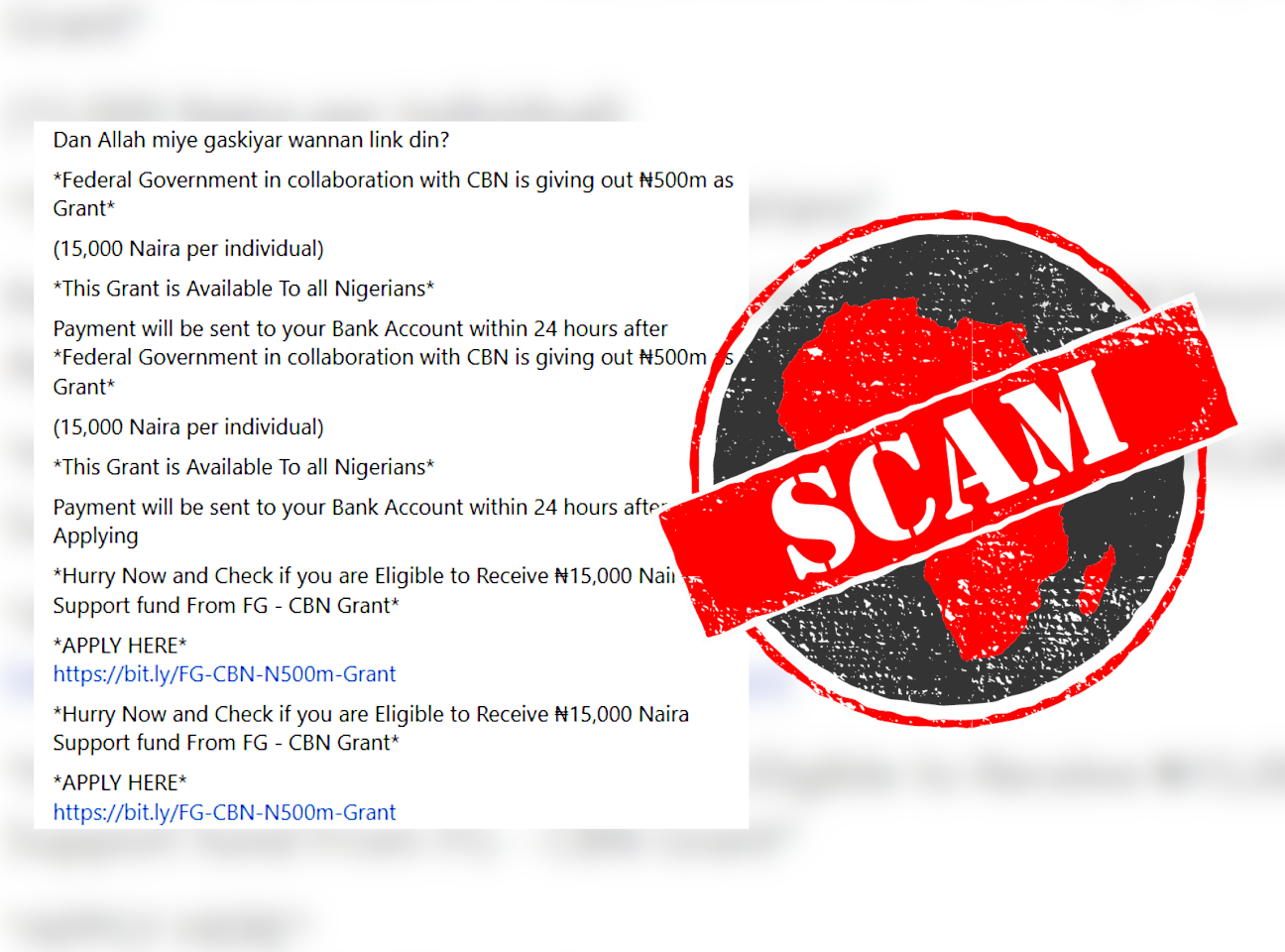A message circulating on WhatsApp and Facebook claims that Nigeria’s federal government is giving grants of up to N500 million to citizens, at N15,000 per individual.
“Payment will be sent to your bank account within 24 hours after applying. Hurry now and check if you are eligible to receive ₦15,000 naira support fund from FG - CBN grant,” it reads.
It links to a website where people can supposedly apply for the grant.
Is the grant offer real? We checked.

Dodgy website with no link to official sites
The website’s landing page looks unprofessional, is crudely designed, and has several grammatical errors.
It reads: “The Federal Government in collaboration with the Central Bank of Nigeria on Monday 1st November 2021. Offer a matching grant of 500 million naira to 36 states while individual get ₦15,000 each in Nigeria to serve as support fund and poverty eradication in Nigeria.”
The site includes photos of Nigerian president Muhammadu Buhari and the country’s central bank with its logo on it, but does not link to any official Nigerian government website. And the URL does not use the gov.ng domain, the official domain for all federal, state and local government websites.
Request for personal information, banking details
The landing page asks users to enter personal details such as their full names, phone number, state and email address.
It then leads to a page with a countdown timer. “You're eligible to be part of the beneficiary of the FG - CBN ₦500m grant,” it says, telling them to provide their banking details.
But to get the money, users must first share the message. “You may get the support fund with only one step, kindly click the "Invite friends/group" button below to share this information with 15 friends or 5 groups on WhatsApp so that they can also benefit.”
Africa Check went through the official websites of Nigeria’s ministry of finance and central bank and more. But we found no record of such a grant.
The message and website are part of a scam. Read our guide to Facebook scams and how to spot them to find out how to help protect yourself against online scams.
Republish our content for free
For publishers: what to do if your post is rated false
A fact-checker has rated your Facebook or Instagram post as “false”, “altered”, “partly false” or “missing context”. This could have serious consequences. What do you do?
Click on our guide for the steps you should follow.
Publishers guideAfrica Check teams up with Facebook
Africa Check is a partner in Meta's third-party fact-checking programme to help stop the spread of false information on social media.
The content we rate as “false” will be downgraded on Facebook and Instagram. This means fewer people will see it.
You can also help identify false information on Facebook. This guide explains how.




Add new comment